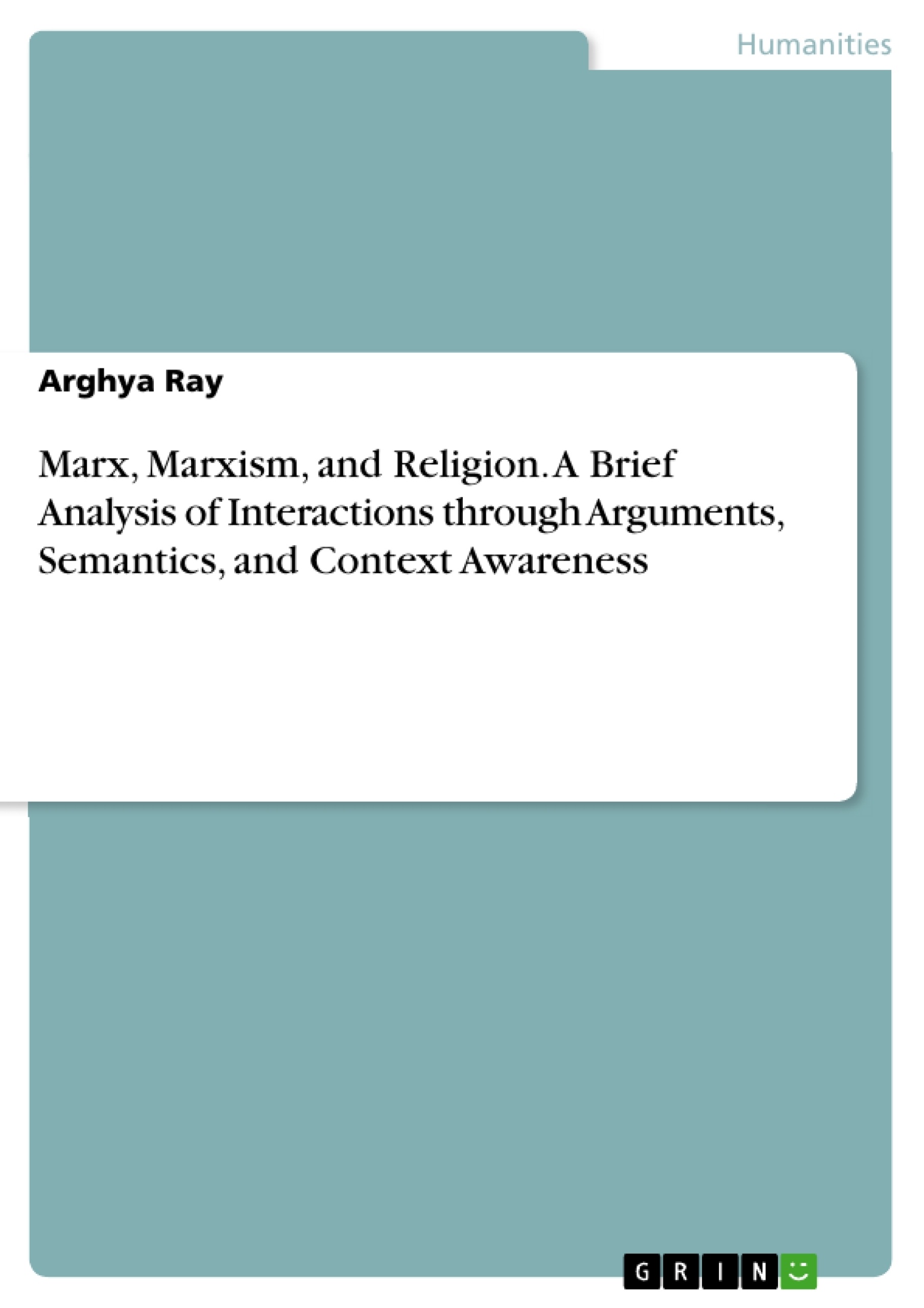Without the fear of contradicting anyone, it can generally be held that academicians worldwide describe Karl Marx as an atheist. This point needs not to be challenged or scrutinised in great depths. The reason is that Marx’s personal mentality or intellectual bending does not profoundly affect the making of Marxism and its applications to the real world. The first country to embrace scientific socialism along Marxist lines came into existence in the form of erstwhile Soviet Union. The Soviet Union or the Union of Soviet Socialist Republics (USSR) was a country that began taking shape in the year 1917. However, Marx had died rather long ago, in the year 1883. So any attempt to find a direct, personalised connection between Marx and USSR is nothing but academically irrelevant. This irrelevance is further bulged when it is considered that Marx was especially interested in the affairs of Germany. According to Marx, only well-developed capitalist economies were expected to be at the verge of a socialist revolution (Desai 2004). However, when the Bolsheviks of a backward capitalist country like Russia managed to establish the USSR, Marx’s predictions came under close scrutiny by the contemporary thinkers (Desai 2004). In the current research work, the economic importance of this development is not the main focus area. The main focus area is Marxism and religion. The main point of contention is not what Marx thought about religion. Overwhelming majority of scholars think that Marx was a decided atheist. However, the main point of contention is what Marxists should actually do while handling religion.
Religion, even in its simplest form, has the capability of manifesting as both personalised and socially dispersed phenomena. While exploring a possible alternative to capitalism, Marxist and pro-Marxist leaders contemplated on various societal issues, which included religion and theology as well (Desai 2004; Lobkowicz 1964). So it is a complex yet necessary pursuit to understand how Marxism needs religion to be handled. If Marxism were completely antireligious, then most of the world’s socialist governments would not have allowed religious freedom (at least officially). For example, even the Soviet Constitution did never authorise the state to destroy religion or persecute people on religious grounds (Ginsburgs 1982). This kind of approach cannot be simplified just on the basis of a longing for internationalism.
Inhaltsverzeichnis (Table of Contents)
- Chapter 1: Introduction
- Chapter 2: Methodology
- Chapter 3: Literature Research
- Chapter 4: Analysis
- Chapter 5: Conclusion
Zielsetzung und Themenschwerpunkte (Objectives and Key Themes)
This research aims to analyze the relationship between Marx, Marxism, and religion, focusing on the interaction between these elements through arguments, semantics, and contextual awareness.
- The distinction between Marx's personal views on religion and the implications of Marxism for religious practices.
- The complex relationship between Marxism and religion in real-world political contexts.
- The importance of understanding the context and semantics of Marx's writings on religion.
- The need to avoid prematurely labeling Marxism as an antireligious ideology.
- The potential for Marxism to coexist with religious beliefs and practices.
Zusammenfassung der Kapitel (Chapter Summaries)
- Chapter 1: Introduction This chapter sets the stage by discussing the commonly held belief that Karl Marx was an atheist and outlining the research question of how Marxism should approach religion. It emphasizes the need to analyze Marx's writings in their historical and contextual context to understand his views on religion and the implications for socialist movements.
- Chapter 2: Methodology This chapter outlines the research methodology employed in the study, including the methods used to gather and analyze data related to Marx, Marxism, and religion.
- Chapter 3: Literature Research This chapter presents a comprehensive review of existing literature on Marx, Marxism, and religion, exploring various perspectives and theoretical frameworks related to the topic.
- Chapter 4: Analysis This chapter dives into the analysis of Marx's writings and the implications of Marxism for religious practices, considering various historical and political contexts.
Schlüsselwörter (Keywords)
The key themes and concepts explored in this work include Karl Marx, Marxism, religion, atheism, socialism, contextual awareness, historical analysis, semantic analysis, religious freedom, political implications, and the relationship between ideology and practice.
Frequently Asked Questions: Marx, Marxism, and Religion
Was Karl Marx a decided atheist?
Most scholars agree that Marx personally held atheist views. However, the research argues that his personal mentality is less important than how Marxism as an ideology handles religion in practice.
Is Marxism inherently antireligious?
The study suggests that Marxism should not be prematurely labeled as antireligious, as historical socialist governments often allowed religious freedom officially.
What was the Soviet Union's official stance on religion?
The Soviet Constitution did not explicitly authorize the state to destroy religion or persecute people on religious grounds, showing a complex relationship between state and church.
How did Marx's predictions differ from the reality of the USSR?
Marx predicted socialist revolutions in well-developed capitalist economies like Germany. The Bolshevik revolution in Russia, a backward capitalist country, challenged these contemporary theories.
What is the focus of the "semantic analysis" in this work?
The analysis focuses on the language and context Marx used to describe religion, distinguishing between his personal views and the political implications for Marxist movements.
Can Marxism and religious practices coexist?
The research explores the potential for Marxism to coexist with religious beliefs, emphasizing the interaction through arguments and contextual awareness rather than pure opposition.
- Citar trabajo
- Arghya Ray (Autor), 2015, Marx, Marxism, and Religion. A Brief Analysis of Interactions through Arguments, Semantics, and Context Awareness, Múnich, GRIN Verlag, https://www.grin.com/document/286691



